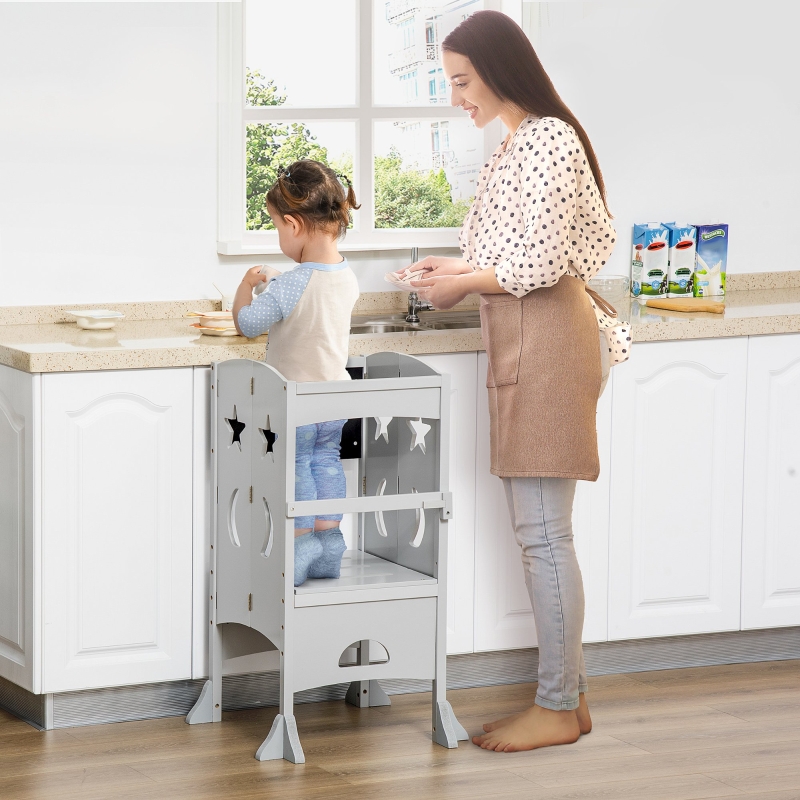Introduction: The Joy of Cooking Together
Mealtime is not just about nourishment; it’s an opportunity for bonding, learning, and creating cherished memories together as a family. While involving children in meal preparation may seem daunting, a toddler kitchen helper can make the experience both safe and enjoyable. In this article, we’ll explore the transformative impact of a toddler kitchen helper on mealtime, from fostering independence and confidence to promoting healthy eating habits and family togetherness.
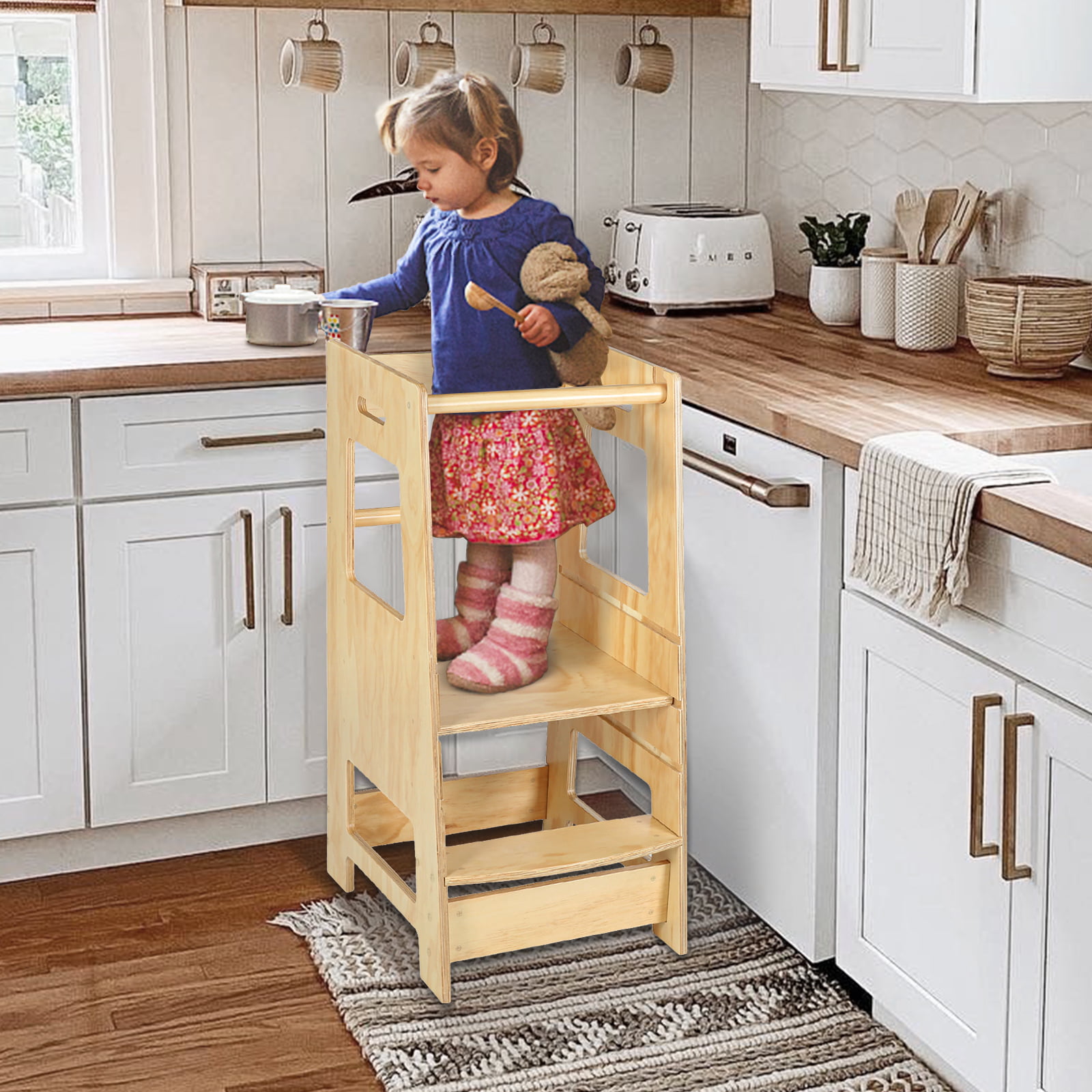
Empowering Independence: The Role of the Toddler Kitchen Helper
A toddler kitchen helper, also known as a learning tower or Montessori tower, is a specially designed piece of furniture that allows young children to safely engage in kitchen activities at counter height. By providing a stable platform with railings or barriers for support, a kitchen helper enables toddlers to participate in meal preparation tasks such as mixing, stirring, and pouring without the risk of falls or accidents. This newfound independence not only boosts a child’s confidence but also fosters a sense of empowerment and autonomy in the kitchen.
Moreover, a toddler kitchen helper promotes the development of essential life skills such as hand-eye coordination, fine motor skills, and spatial awareness. As children engage in hands-on activities like measuring ingredients, kneading dough, or arranging toppings, they enhance their cognitive abilities and problem-solving skills while learning valuable lessons about food and nutrition. By empowering independence in the kitchen, a toddler kitchen helper lays the foundation for a lifetime of healthy eating habits and culinary confidence.
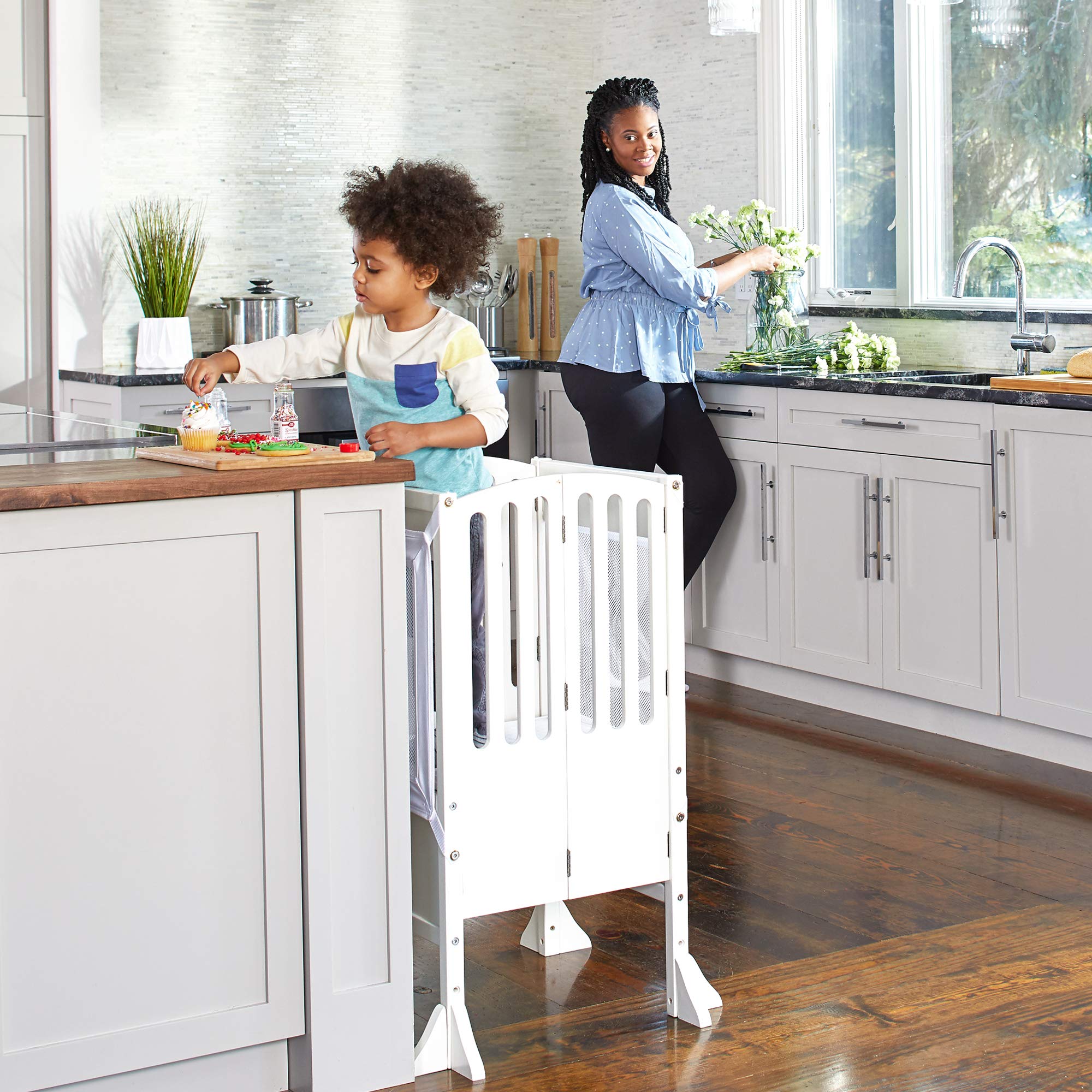
Beyond the practical benefits, a toddler kitchen helper facilitates meaningful family bonding experiences during meal preparation. As children stand side by side with parents or caregivers at the kitchen counter, they have the opportunity to observe, imitate, and engage in conversation, fostering open communication and building strong familial bonds. Whether it’s discussing ingredients, sharing stories, or singing songs while stirring the pot, mealtime becomes a time for connection and togetherness.
Furthermore, involving children in meal preparation cultivates a sense of ownership and pride in the dishes they help create. As they contribute to the cooking process, children develop a sense of accomplishment and appreciation for the effort that goes into preparing a meal, leading to greater enjoyment and satisfaction during mealtimes. By making cooking a collaborative and interactive experience, a toddler kitchen helper transforms mealtime into a shared celebration of food, family, and love.
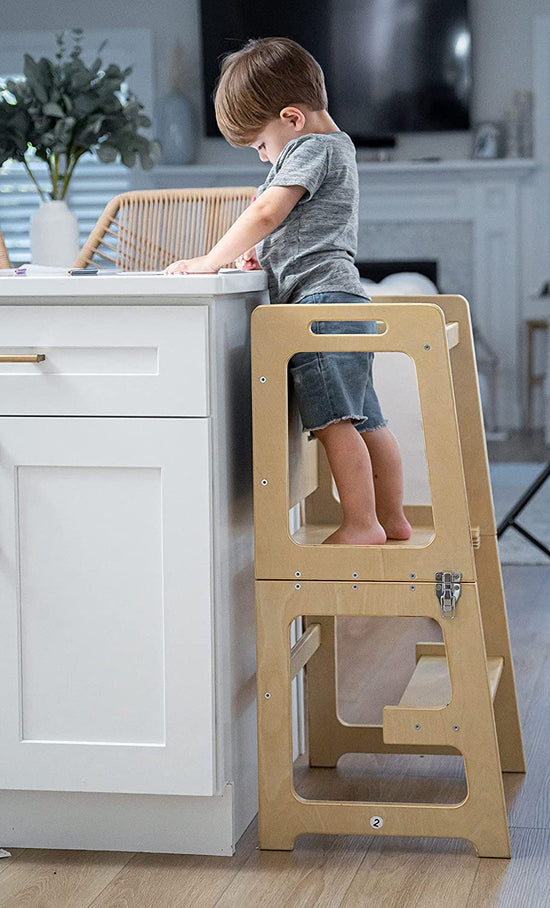
Culinary Education: Nurturing Curiosity and Creativity in the Kitchen
A toddler kitchen helper serves as a platform for hands-on learning and exploration in the culinary world. As children engage in sensory experiences such as touching, smelling, and tasting different ingredients, they develop a deeper understanding of food and its role in nourishing their bodies. Additionally, a kitchen helper provides opportunities for age-appropriate cooking lessons, allowing children to learn basic cooking techniques, kitchen safety practices, and food hygiene principles in a supervised and supportive environment.
Moreover, a toddler kitchen helper sparks creativity and imagination in the kitchen, encouraging children to experiment with flavors, textures, and recipes. Whether it’s inventing their own signature dish or putting a playful twist on a classic recipe, children are inspired to express themselves creatively and develop their culinary skills. By nurturing curiosity and creativity in the kitchen, a toddler kitchen helper instills a lifelong love of cooking and empowers children to explore the diverse world of food with enthusiasm and confidence.
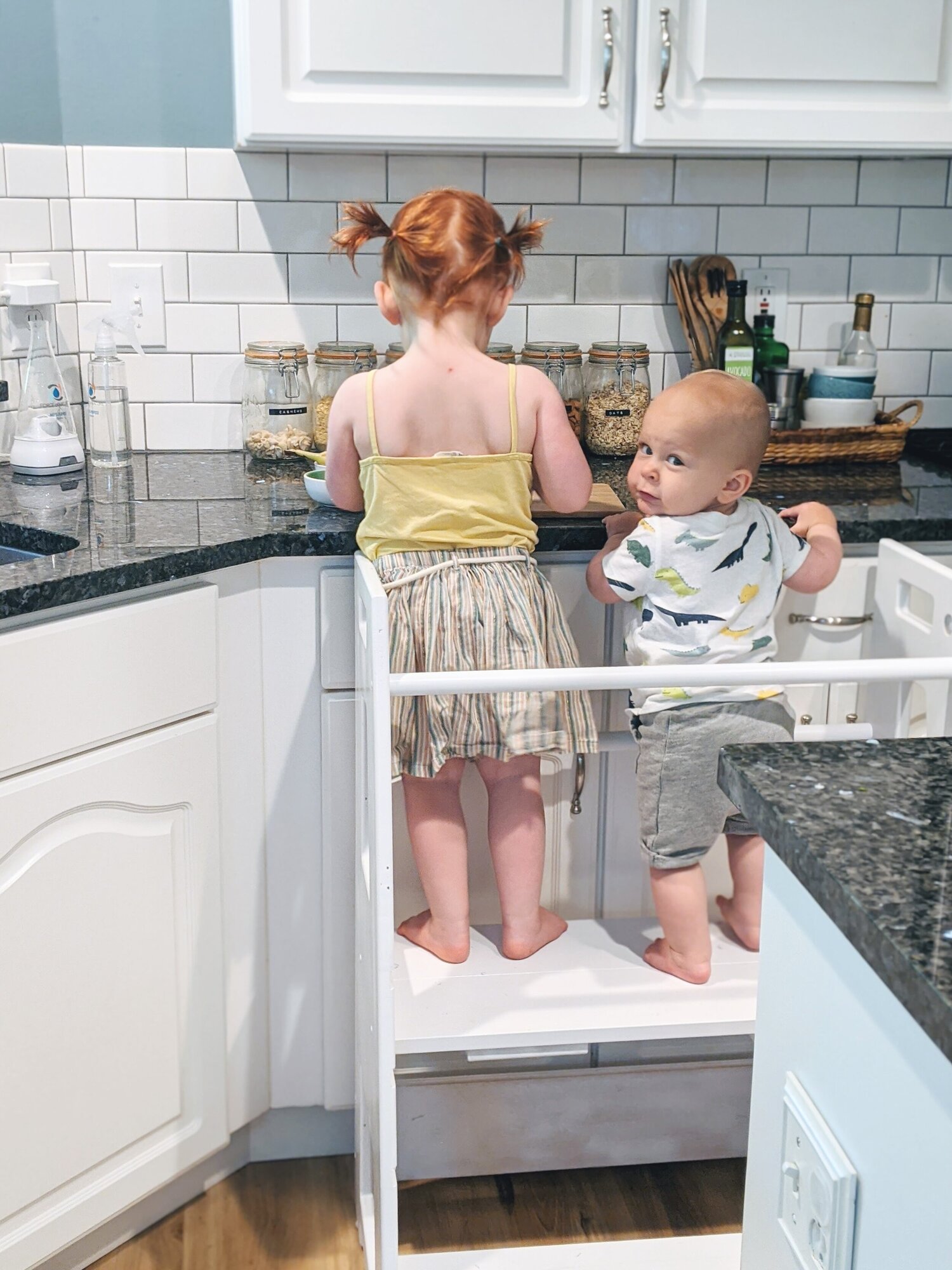
Promoting Healthy Eating Habits: From Farm to Table
In addition to fostering independence, family bonding, and culinary education, a toddler kitchen helper plays a vital role in promoting healthy eating habits from an early age. By involving children in meal preparation, parents and caregivers can instill a love for fresh, wholesome ingredients and encourage adventurous eating habits. As children participate in choosing, washing, and preparing fruits, vegetables, and other nutritious foods, they develop an appreciation for the natural flavors and textures of whole foods.
Furthermore, a toddler kitchen helper provides opportunities for children to learn about the origins of their food and the importance of sustainable and ethical food practices. Whether it’s visiting a local farmers’ market, planting a kitchen garden, or cooking meals with seasonal produce, children gain a deeper connection to the food they eat and the journey it takes from farm to table. By instilling an understanding of the value of fresh, locally sourced ingredients, a toddler kitchen helper lays the foundation for a lifetime of healthy eating habits and environmental stewardship.
Encouraging Exploration: A Gateway to Diverse Cuisines and Cultures
One of the remarkable aspects of involving children in meal preparation with a toddler kitchen helper is the opportunity to introduce them to a diverse array of cuisines and cultures from around the world. As children assist in cooking dishes inspired by different culinary traditions, they embark on a culinary journey that broadens their palate and expands their cultural awareness. Whether it’s rolling sushi, kneading dough for homemade pasta, or seasoning spices for Indian curry, children gain exposure to a rich tapestry of flavors, ingredients, and cooking techniques.
Moreover, exploring diverse cuisines fosters curiosity and respect for cultural diversity, encouraging children to embrace and celebrate culinary traditions from various cultures. By preparing and sharing meals from different parts of the world, families can engage in meaningful conversations about food culture, history, and traditions, fostering empathy, understanding, and appreciation for cultural diversity. Through the shared experience of cooking and enjoying diverse cuisines together, children develop a sense of global citizenship and become more open-minded and inclusive individuals.
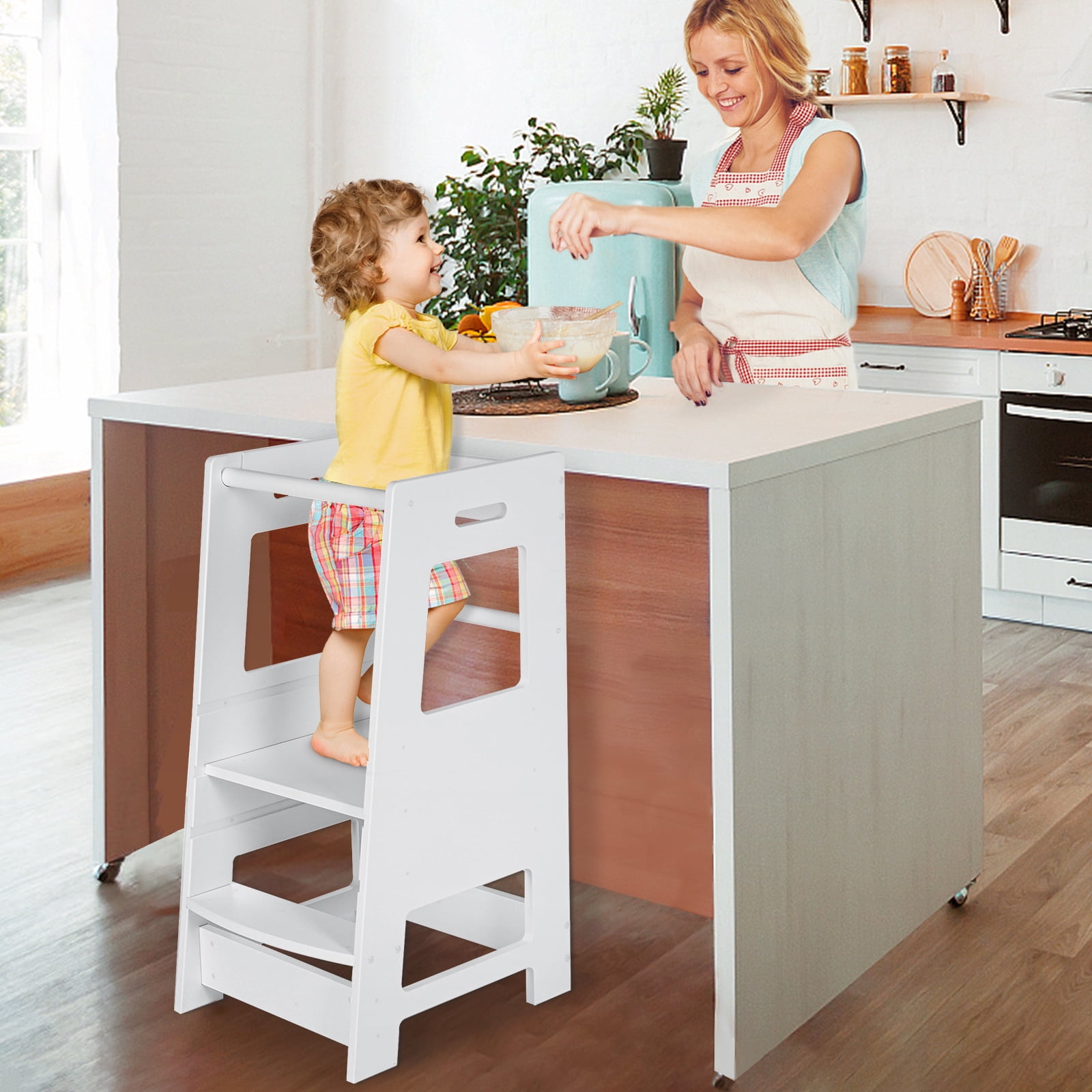
Building Confidence and Competence: Skills for Life Beyond the Kitchen
In addition to fostering a love of cooking and appreciation for diverse cuisines, a toddler kitchen helper equips children with essential life skills that extend far beyond the kitchen. By engaging in meal preparation activities such as measuring ingredients, following recipes, and practicing kitchen safety, children develop valuable skills in numeracy, literacy, and executive function. These skills not only prepare children for future academic success but also instill confidence and competence in navigating everyday tasks and challenges.
Furthermore, participating in meal preparation with a toddler kitchen helper cultivates important life skills such as teamwork, cooperation, and communication. As children collaborate with family members in the kitchen, they learn to work together, solve problems, and negotiate differences, fostering strong interpersonal skills that are essential for success in school, relationships, and the workplace. By providing opportunities for children to take on meaningful roles and responsibilities in the kitchen, a kitchen helper empowers them to become self-reliant, resourceful, and resilient individuals.
Conclusion: Transforming Mealtime with the Power of Participation
In conclusion, a toddler kitchen helper is more than just a piece of furniture; it’s a catalyst for transformative experiences and meaningful connections in the kitchen. By empowering independence, fostering family bonding, nurturing culinary education, and promoting healthy eating habits, a kitchen helper transforms mealtime into a joyful and enriching experience for children and caregivers alike. So embrace the joy of cooking together, and let a toddler kitchen helper be your guide on a culinary journey filled with love, laughter, and delicious memories.
